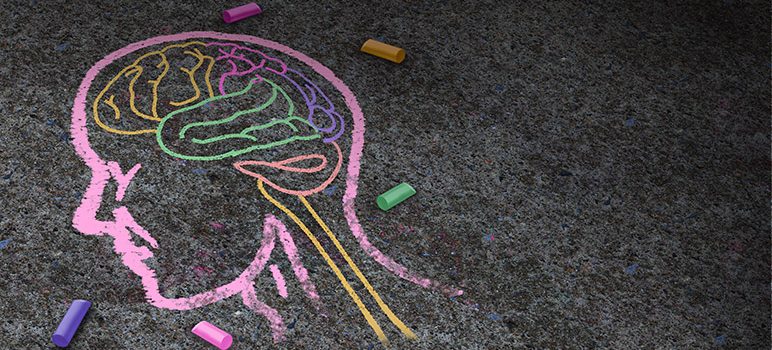Today we are “sheltering in place” to protect our physical health, the health of our loved ones and our greater community. However, these protections, combined with the enormous uncertainty we face, can have a significant toll on our mental health.
The impact will likely be more severe for people who have experienced episodic depression and/or anxiety and for those who live with ongoing mental illness. The good news—and we all need some good news right now—is that there are many easy things you can do right now at home to care for your mental health.
Keep or create a routine.
Child development professionals emphasize the importance of routine, especially for young children. As it turns out, routine is helpful for adults too. What does this mean while we’re sheltering in place? It’s as simple as setting your alarm and getting up at a regular time, brushing your teeth, taking a shower, getting dressed, eating breakfast, going for a walk. If you’re working from home, create a schedule for your work time as well as breaks for meals and fresh air.
Without the structure of work, you can still create routine by scheduling time slots for doing household chores, reading, calling friends and getting outside.
Maintain regular social contact. Social-distancing does not mean social isolation.
Humans are social creatures. Maintaining contact with friends, loved ones, and religious/spiritual/support communities can help ease anxiety, fear and isolation. This does not mean you must talk with anyone and everyone. You have the power to choose who you connect with, such as those people who allow you a safe space to voice your concerns and who are not prone to flaming your anxieties.
Luckily, in this age of technology, we have phones, email, FaceTime, texting, online meetings and so many more options.
Limit media consumption, including social media.
Yes, you want to stay informed and it is important to do so. But constant media consumption can add to anxiety, fear and uncertainty. Set limits on how much news you consume, whether TV, digital or print. Consider giving yourself 20 minutes each morning and night to catch up on the day’s news and limit your media to trusted news sources.
Practice good health … as best you can.
Get some exercise and time outside, practicing social distancing of course. Utilize exercise and yoga videos online. Drink lots of water. Eat plenty of fruits and vegetables—get creative/adventurous if your favorites are not in stock right now.
Make space for humor and joy.
As it turns out, you can experience worry and joy, anxiety and humor, all at the same time. Having one emotion does not negate having the other. So, while living with uncertainty, still embrace those moments that bring you joy. Laugh with your child or a friend. Have a one-person dance party, or FaceTime in a friend. Watch your favorite rom-com or stand-up comedian.
Seek professional help.
Do not hesitate to reach out if you feel you need professional help. Most providers, like Community Solutions, are providing services via telephone and/or secure online options. Insured individuals should reach out to their insurance provider to see what services are available. Anyone in Santa Clara County, including uninsured individuals, can call 2-1-1 for referrals to available mental health services.
Erin O’Brien is president and CEO of Community Solutions, a nonprofit organization that provides mental health and other services for Santa Clara County’s vulnerable residents. Based in Gilroy with offices in Morgan Hill and Hollister, Community Solutions can be reached at 408.842.7138.


I tell ya, nothing impacts my mental health negatively as much as San José Airport’s constant barrage of aircraft overhead, especially on those damned so-called South Flow days. The airport has been quieter of late, so my mental health is slowly improving. Heck, I may even go out in my back yard again now :-)